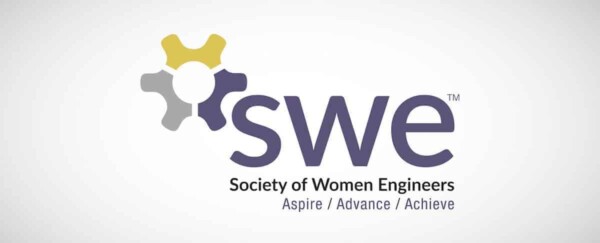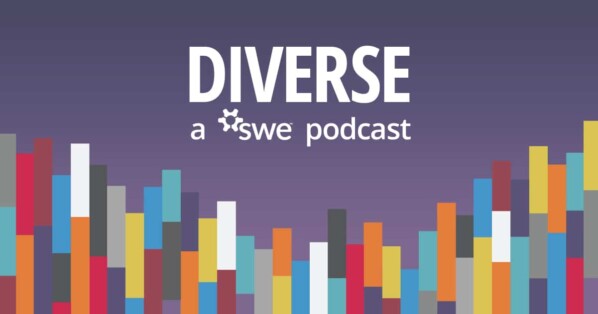I graduated in 2018 from Rensselaer Polytechnic Institute with a BS degree in Chemical Engineering. I really loved my chemistry and organic chemistry classes in high school which prompted me to study chemical engineering in college. My path to my current role is not traditional. Throughout my college experience, I had multiple internships in the chemical industry, but after graduation, I instead took a job as a software engineer, which eventually led me to become the security operations manager for my company.
In college I was a part of the Society of Women Engineers and the outreach coordinator for my RPI SWE section. SWE gave me a lot of leadership opportunities that I did not have through my general coursework in college. It also provided me with a network of women going through similar experiences as myself being a minority in our classes. I am now able to leverage this network to help find jobs and I have a community to return to every year at our annual conference.
In college, I had five internships and did research on campus. While most of my college experiences were in the chemical industry as opposed to software development or cybersecurity, I still learned a lot about myself, which led me to where I am now. I did several internships at SABIC, at a location that manufactures plastic, one internship at GE in rural Tennessee where they manufactured busway (an alternative to wire for conducting electricity), and one internship at ExxonMobil with the environmental remediation team at their headquarters. I went into each of these experiences not knowing what to expect and I had to move all over the country for them. I went in with an open mind and I learned that I am a calculated risk taker and that sometimes the best opportunities and projects are the ones you don’t plan for yourself. I also learned that real world experiences will never be like the textbook problems I encountered in my classes. Instead, the most valuable thing that contributes to success is being open to learning new things and the creative mindset I use when approaching problems.
In one particularly shaping experience at SABIC, I was tasked with managing the scheduling of projects for a large plant shutdown (many maintenance tasks and projects can’t be done while the plastic manufacturing lines are up and running). This was a large responsibility and through that assignment, I gained experience managing contractors. I knew after that assignment that I wanted to manage a team one day. All these experiences led me to take the risk and switch career fields after I graduated when I was offered a position as a software engineer. Despite not knowing much about software, I knew I could learn and I knew that I had the right mindset to approach any problem I encountered in that new field.
I knew that I wanted to be an engineering manager because I knew that the visions and aspirations I had for making change at a company exceeded my ability to complete individually. I knew that I would need a team to help me and that I would need to delegate tasks in order to maximize my contributions. In my internships and my role as an engineer at McMaster-Carr, I had the opportunity to manage contractors for the projects I worked on. This gave me leadership experience that helped me successfully transition into management. While working at McMaster-Carr I got an MBA and a Master’s degree in Information Technology Management part time from Indiana University’s Kelley School of Business. I was promoted into management while I was in the middle of the MBA program.
Currently, I am the cybersecurity operations manager at McMaster-Carr. I manage a team of engineers that work to make sure our company’s computing environment is secure and protected against cyberattacks. We remediate vulnerabilities (flaws in software or hardware that can potentially allow an attacker to get into our systems) and we investigate potential attacks. On a typical workday, I am having check-ins with my engineers to make sure I am up to date on their assignments. I am also communicating to other software development and infrastructure teams at the company to ask for their assistance in remediating vulnerabilities that affect their systems. As a manager, I am also responsible for communicating the benefits and progress of my team to the broader company so I am often meeting with my boss and others in leadership to share the impact of our work.
Prior to becoming the security manager, I had several engineering roles on various software development and infrastructure projects and then I became the tech support manager for our California branch. Through each of these experiences, I learned new things about technology that have been useful to me as I continue my career. The tech support manager role was particularly shaping for me as it was my first experience as a manager. In that role, I managed a call center and email queue with on-site cases as well as remote support cases. We supported a wide variety of software and hardware so I had to learn how to use my network within the company to help solve the tough problems. I also learned to communicate with a broad variety of teams as our tech support organization serves our warehouses and corporate teams.
My company, McMaster-Carr, is an industrial supply company that aims to be the complete source for any industrial need. We sell over 500,000 products and we are best known for our massive yellow and green catalog that engineers love to peruse so they can discover new things that help them solve whatever problem they’re working on. Check out this video Mythbuster’s Adam Savage made about our catalog: https://youtu.be/8kbu34dk92s McMaster-Carr is unique in that we often hire based on capability to learn and not current skill. We value teaching and learning and have a training program that helps new employees get quickly up to speed with technology and coding. That’s how I was hired with a background in chemical engineering for a job in software engineering. So many of the lead engineers at my company that I look up to have backgrounds in non-technical fields like Economics, English, and Philosophy. This allows us to have a variety of perspectives on each of our projects so we can come up with creative solutions.
My favorite part of being an engineering manager is helping my team achieve their fullest potential. I like to understand each person’s professional and personal goals and help them work toward them. When a person is feeling valued and supported by their manager, they do better work, and that is good for both them and the company.
If I can give any student some advice it would be to not let anyone tell you that you can’t achieve your goals and know that the ability to learn is a superpower that will propel you in your career. If you are unsure what type of engineering you want to pursue, don’t worry, you can always pivot from the choice you make. The most valuable thing you get out of an engineering degree is the problem solving mindset and that is transferable to any job!
Author
-
Written by Emily Tacopina: Emily is a Consultant Engineer at FM Global. Emily graduated from the University of Rhode Island with a BS degree in Mechanical Engineering.





